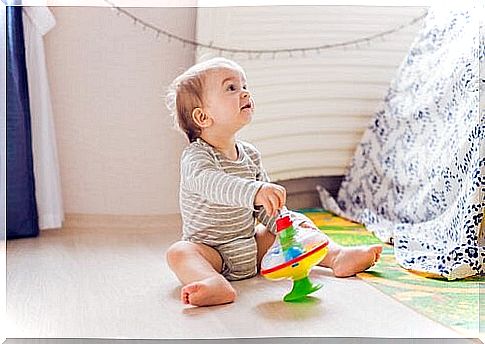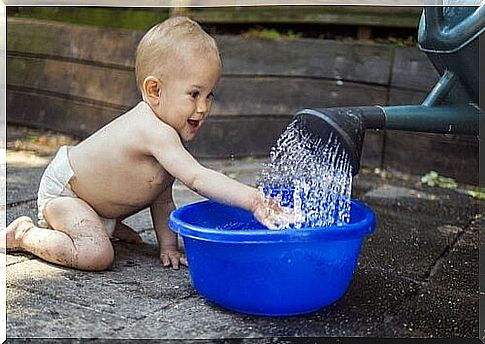Children’s Curiosity: Characteristics And Benefits

Curiosity is something children use to learn. Some parents may inadvertently view their children’s curiosity as an unwelcome or negative trait, which may lead them to limit their natural curiosity.
How can you keep your child’s curiosity alive? The following are some helpful suggestions.
How to define curiosity
Curiosity is a natural instinct that means you want to know more about something through exploration and interaction. It encourages people to seek new information, interact with their environment and the people around them. This instinct also stimulates personal development.
Children are little discoverers. They are born with an inherent curiosity. They try to interact with everything by touching, looking at and observing the objects and the people around them.
By asking questions like “why?” right?” they can get useful information.

What characterizes children’s curiosity
As parents, it is important for us to take care of and improve our children’s curiosity. By taking these steps, we can help them learn more effectively.
Do not let your child lose any of the following characteristics:
- Interest
- Motivation
- Restlessness
- Passion
3 ways to motivate the brain to learn
Curiosity about a subject makes it much easier to learn, retain and absorb information about it. The expectation generated by curiosity motivates the brain to absorb knowledge better because:
- It activates dopamine, which is a chemical messenger or neurotransmitter to achieve goals. It also promotes the storage of information.
- Curiosity provides benefits for the hippocampus, which is one of the centers of the brain. The hippocampus is important for the formation and consolidation of both long-term and short-term memory.
- The tandem or reward system facilitates learning and receiving information.
The importance of stimulating children’s curiosity
It is very important to stimulate children’s curiosity because it arouses the interest needed for them to learn and develop their thoughts. Children who are not curious can:
- Be less sociable.
- Read fewer books.
- Be hard to inspire, motivate and make enthusiastic.
- Show some interest in learning new things.
Benefits of children’s curiosity
As soon as they start talking, children start asking questions. The fact that they keep their curious eyes open to the world to learn new things brings many benefits, for example that it:
- Strengthens their relationships with others.
- Protects their brains.
- Helps them grow.
- Helps them overcome anxiety.
3 negative habits that affect curiosity
There are three habits that can negatively affect the development of curiosity in your child.
Fear
Fear is the main enemy of curiosity. Overprotection of your child as a parent only gives more fear. It can also give feelings of incompetence.
Avoid using phrases such as: “Do not touch it because you will hurt yourself” or “Do not run, you will fall.” Let your child be interested in exploring new things.

Disapproval
Children always want to play and explore. It is not wise to constantly say “do not do it”, “do not get dirty” or “be quiet.”
It holds them back and prevents them from being curious. It’s okay for you to say that from time to time, as long as what you say is justified and you explain your reasoning to them.
Absence
Your children feel safe when you are by their side, and it helps them develop their curiosity even more. By playing with your children, you also give them the opportunity to share what they learn with you.
In summary; To stimulate your children’s curiosity, you need to devote time to them. You need to listen to them and strengthen their behavior positively. Curiosity helps them meet their challenges in the future. By helping them develop their curiosity, you also help them develop their self-esteem.









